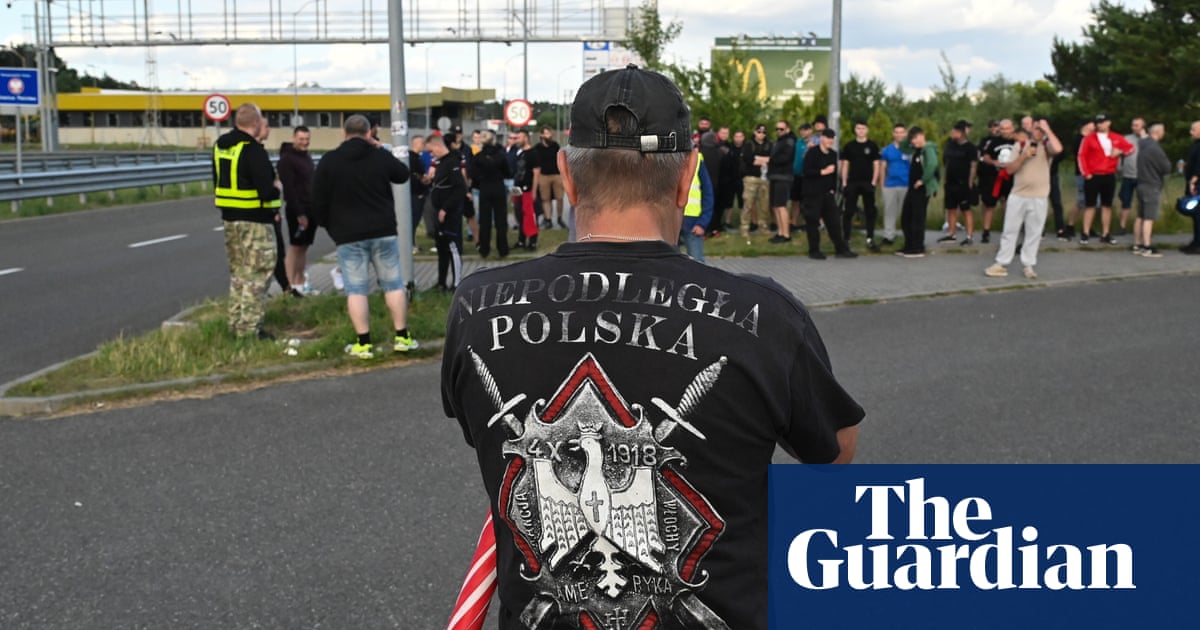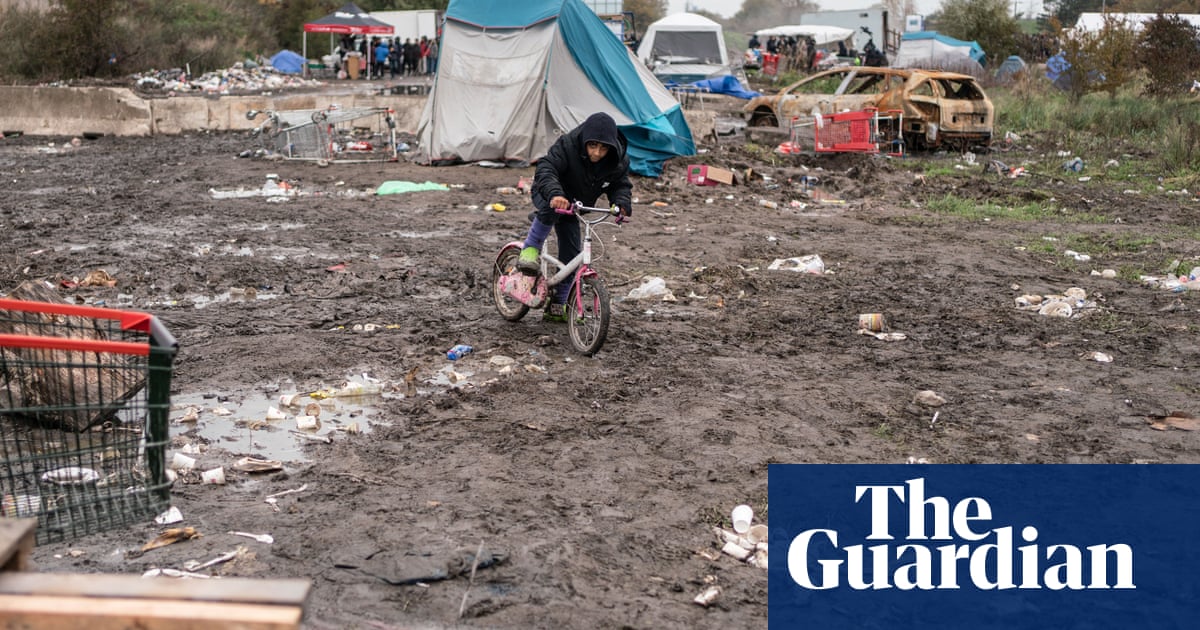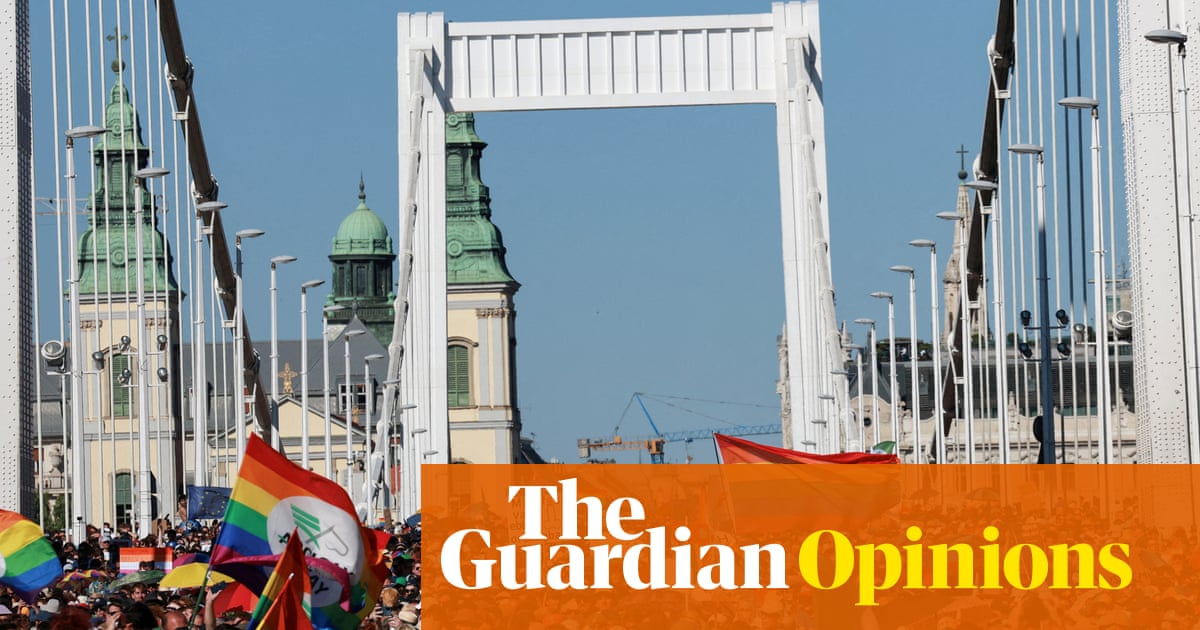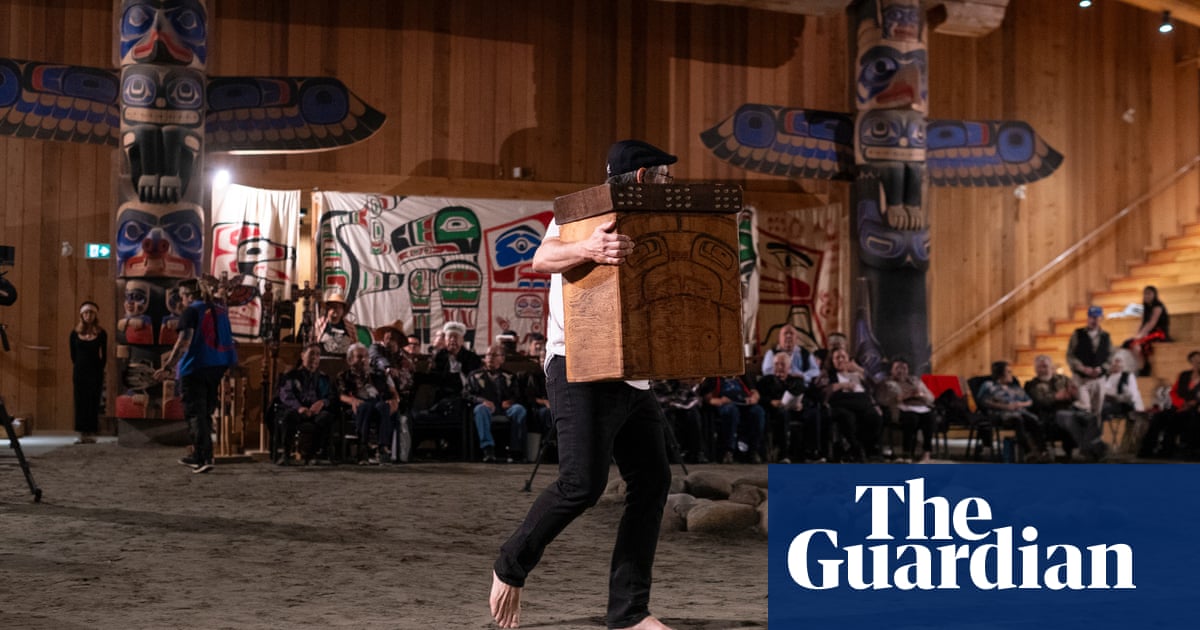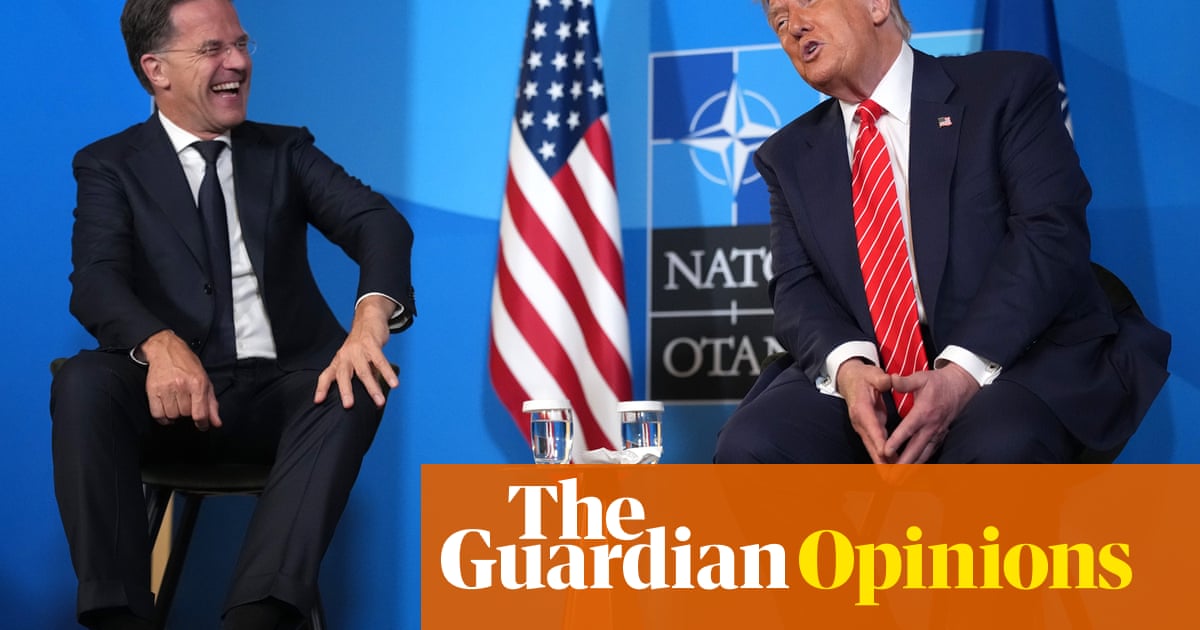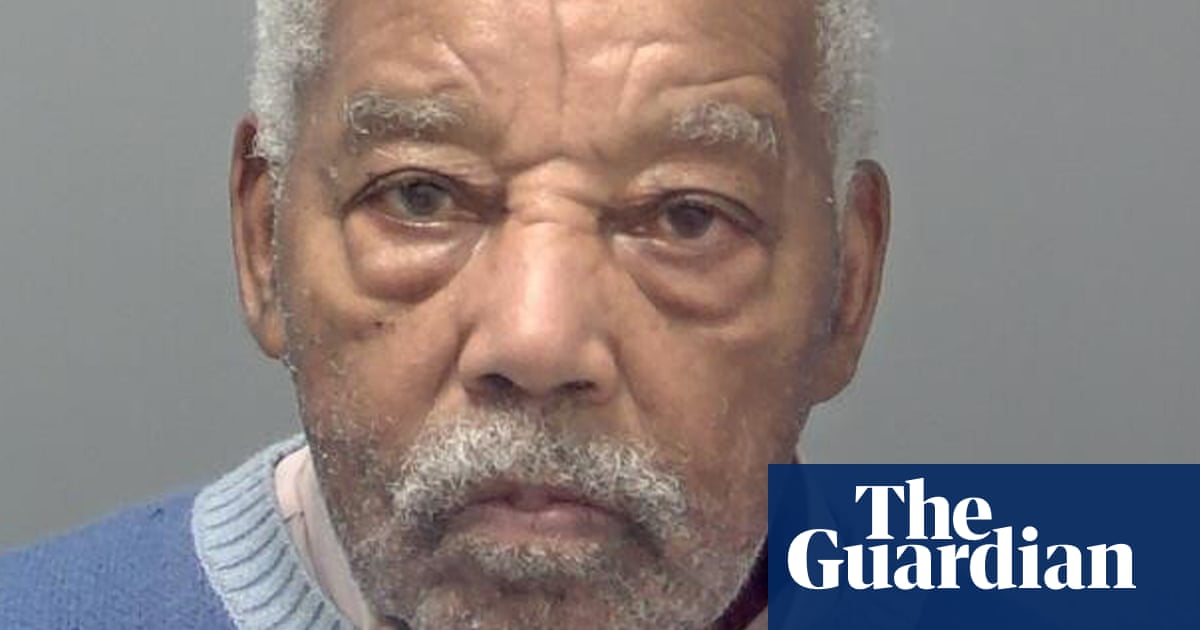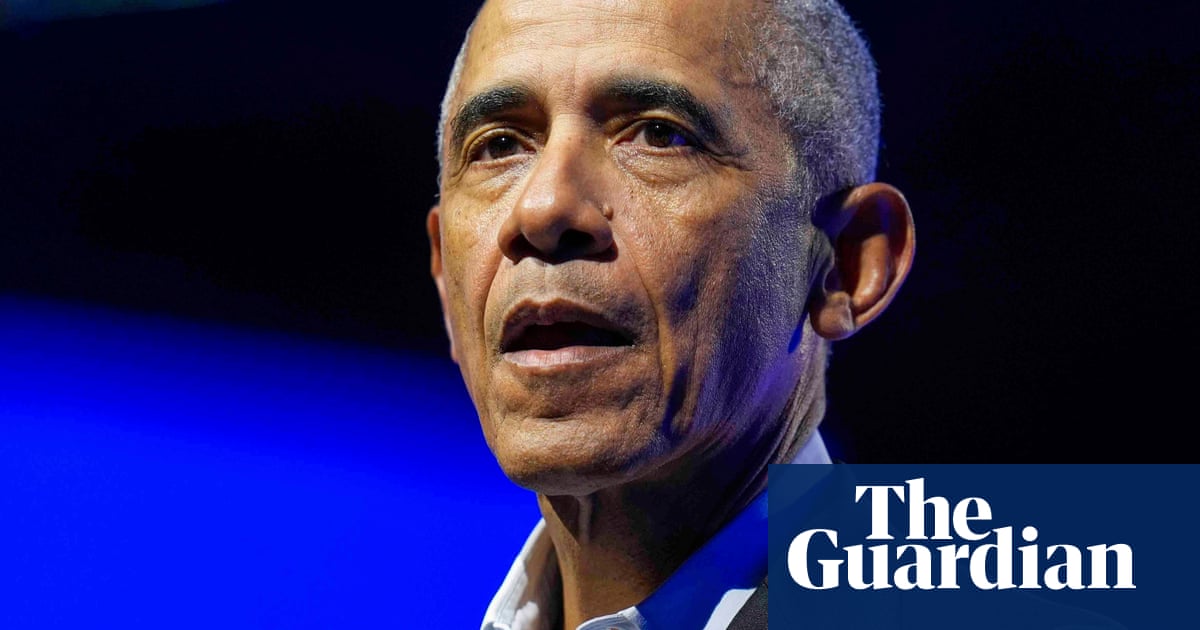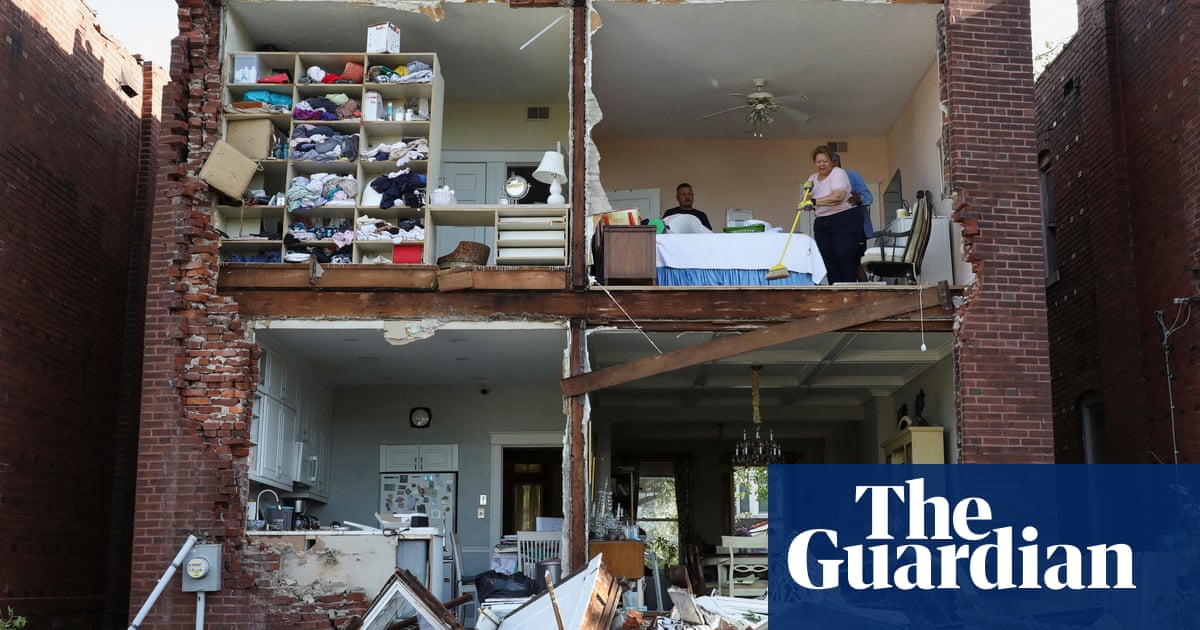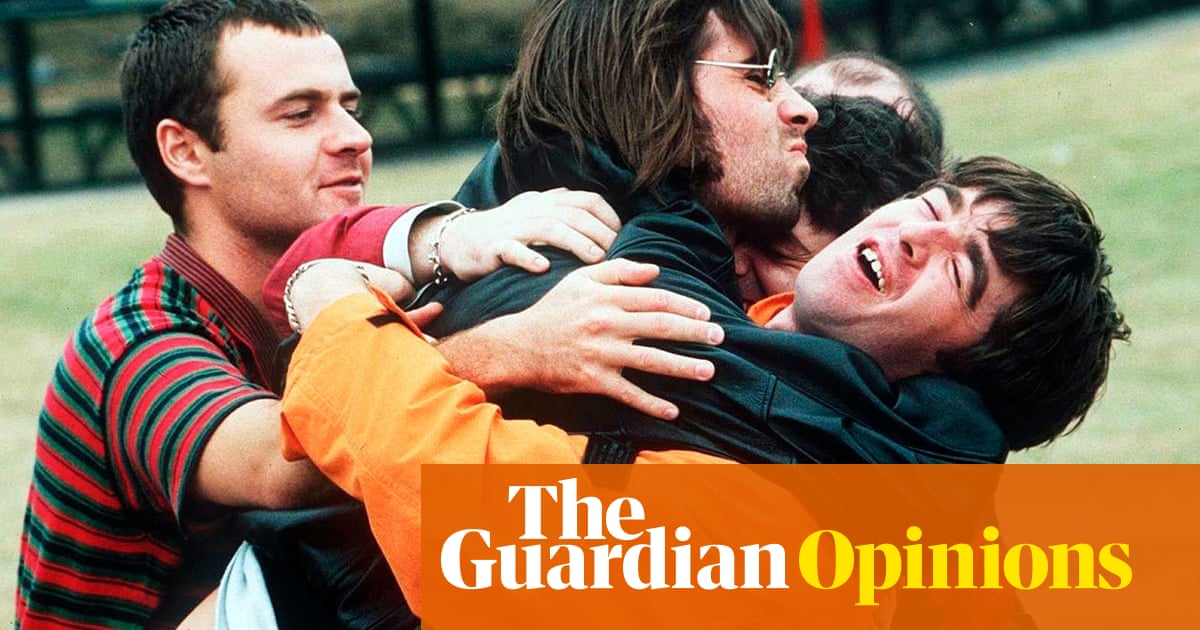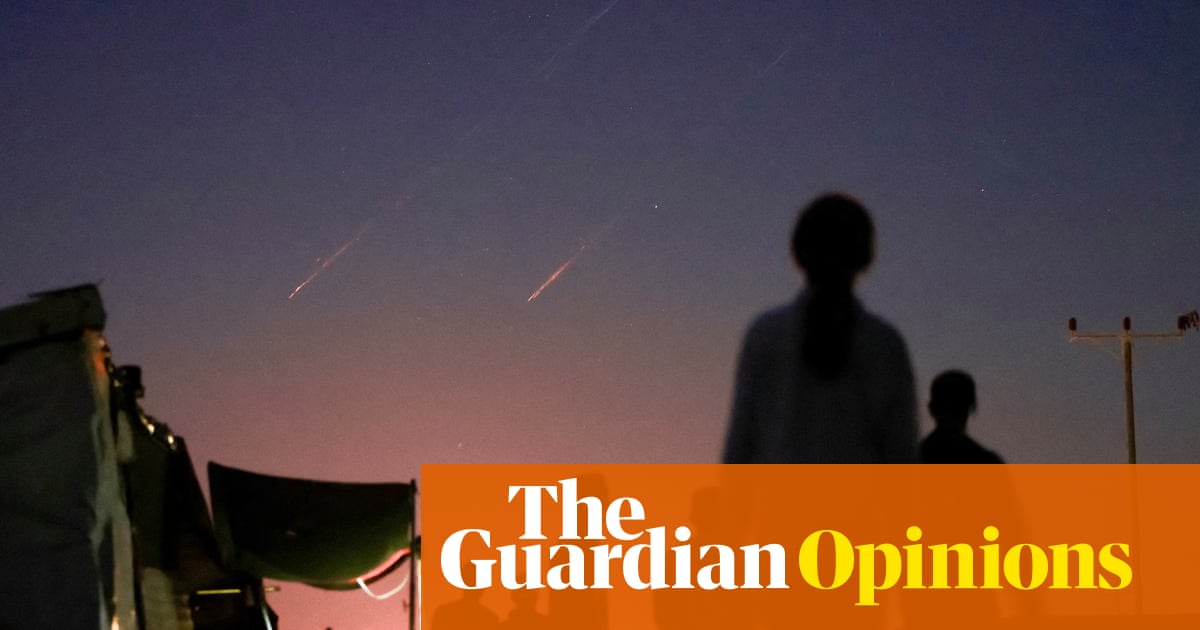The Ukrainian Shakespeare festival in the city of Ivano-Frankivsk did not open with a play. Another kind of performance was staged on the steps of the theatre, one that did not deal with sad stories of the death of kings but with tragedy unfolding in real life.
This was theatre in a different sense: a rally involving several hundred people demonstrating on behalf of Ukrainian prisoners of war, thousands of whom are estimated to remain in Russian captivity.
A couple of women in the crowd, holding a flag showing the face of their beloved, wiped away tears. A small girl in a blue cotton dress held up a sign: “Be their voice.” Another: “Without you I am nothing.”

A few hours later, audiences gathered for a spectacular promenade production of Romeo and Juliet, staged in an abandoned factory and the theatre’s crypt-like basement, watching young lives torn apart by a malign fate.
The festival had not been undertaken lightly, said the festival programme director, Iryna Chuzhynova, in a speech at its opening reception. The organisers had asked themselves whether holding a festival was the right thing to do while Ukraine was struggling against the Russian invaders. In the end, she said, “we agreed that art is not in fact entertainment today”.
“It’s true that in the theatre we create an illusion of peaceful life, but it’s not peaceful life,” Chuzhynova said later. “We need to be together. When you’re in grief you need others’ support. That’s why we have these ceremonies, these rituals of theatre.”
She said Ukraine was living in “a moment of concentrated simultaneity” in which normal life and the catastrophe of war were experienced in disturbing proximity. One of the cast of Romeo and Juliet was not in the play that day, she added: he had recently signed a military contract and was already at the front.
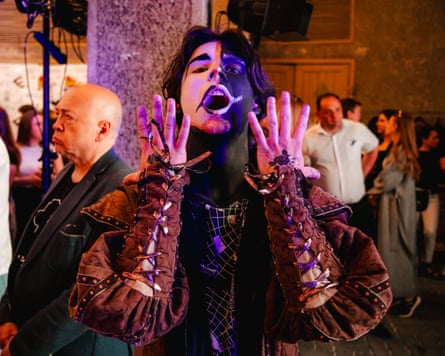
This year’s Shakespeare festival is the city’s second, after the organisers decided to forge ahead with 2024’s inaugural edition. And, unlikely as it may seem, Shakespeare is booming across Ukraine. A King Lear and two Othellos are in repertoire in major Kyiv theatres; there is also an A Midsummer Night’s Dream in the capital, a Hamlet, a Macbeth and a Romeo and Juliet.
“You can always find an intersection to Shakespeare’s world in such situations as we have,” said the celebrated poet and translator Yuri Andrukhovych, who has made Ukrainian translations of four Shakespeare plays, including the festival’s Romeo and Juliet. “There is a big need for theatre to work with existential problems: fear, hate, passion, betrayal, the human soul.”
There were Shakespeare comedies at the Ivano-Frankivsk festival – The Comedy of Errors and Much Ado About Nothing – but the programme skewed towards tragedy, with, aside from Romeo and Juliet, two productions of King Lear plus a Richard III and a Macbeth. “It’s important to have a place for tears,” Chuzhynova said.
Ivano-Frankivsk is in Ukraine’s south-west, hundreds of miles from the frontline in the foothills of the Carpathian mountains. But in the third year of Russia’s invasion of the country, war hangs everywhere in the air. The pleasant pedestrianised streets of the small city are lined with more than 500 official memorials to the town’s fallen, with flags fluttering above their portraits and flowers laid beneath them.
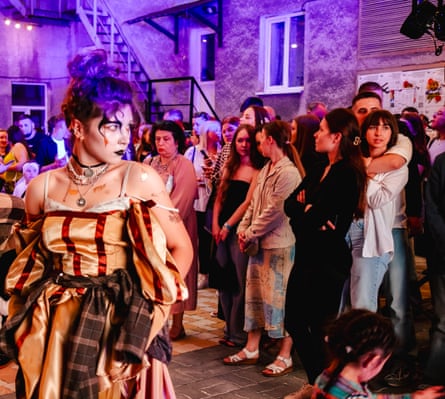
The most popular Shakespeare play in Ukrainian theatres since the full-scale invasion has been Macbeth, Chuzhynova said. Its tale of the rise and fall of a tyrant speaks to the moment – most obviously calling to mind Vladimir Putin, but plenty of other authoritarian leaders around the globe. Andrukhovych is about to start work on a new translation with a view to a fresh production.
Chuzhynova said Shakespeare had a way of speaking to Ukraine’s political upheavals. In the wake of the Orange Revolution of 2004, when Russian-influenced political rhetoric pushed the narrative of “two Ukraines”, east and west, it was Romeo and Juliet, with its warring families, that became popular.
After the Maidan protests, instigated in 2013 by students angry with the pro-Russian turn of their then president, Viktor Yanukovych, it was Hamlet that attracted directors: the story of a young man working out his identity while, in the background, a powerful neighbour arms for war.
Macbeth had also been important in Ukraine a century ago, said Rostyslav Derzhypilskiy, the director of the Romeo and Juliet production. It was in 1920 in the central Ukrainian village of Bila Tserkva that the visionary director Les Kurbas – later killed in Stalin’s purges – staged the first production of the play (and of any Shakespeare play) in the Ukrainian language. This was during the war that ripped through Ukraine after the October revolution of 1917.
after newsletter promotion
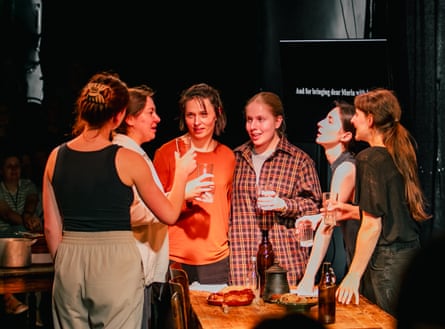
It is the imagined aftermath of one of those performances that provides the setting for a new play at the festival, When the Hurlyburly’s Done, by the American playwright Richard Nelson and performed in Ukrainian translation.
The all-female cast, from the Theatre on Podil in Kyiv, take on the roles of the women of Kurbas’s company who cook, talk and eat together one evening. The characters include Bronislawa Nijinksa, who would later choreograph the radical Stravinsky ballet Les Noces.
Nelson said the play was “about a group of young actresses putting on a play in the middle of the war to be performed by a group of young actresses putting on a play in the middle of a war”. Uncertainty, violence and fear haunt the characters – who nevertheless find solace in each other’s company.
“Almost everything in the play is very similar to events happening now,” said one cast member, Yulia Brusentseva. Maria Demenko, another actor, said: “War is part of our lives and can’t be separated from it. It’s hard to live with that. Like our characters, we don’t know what’s going to happen tomorrow. We don’t know what decisions we will need to make.”
At the end of each festival performance, the actors asked the audience to keep a minute’s silence. The devastating news that a member of their company, a popular young actor called Yuriy Felipenko, had been killed at the front had arrived the previous day.
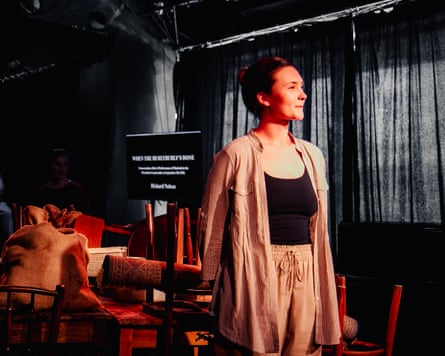
“When people are on the verge of tears anyway, tragedy goes to a different level,” said Prof Michael Dobson, the head of the Shakespeare Institute at Birmingham University, who was attending the festival. The contrast between seeing stuff here and back home was “almost embarrassing”, he added. “In Ukraine the work really means something to the actors and the audience. It’s not some routine exercise.”
Dobson said Shakespeare was an important figure in Britain during the second world war. John Gielgud toured his famous Hamlet. The film of Henry V starring Laurence Olivier, released in 1944, was a national morale booster. In a prisoner-of-war camp in Silesia, the young Denholm Elliott starred as Viola in Twelfth Night. The magical atmosphere of Powell and Pressburger’s A Matter of Life and Death (1946) is intensified by the fact that A Midsummer Night’s Dream is being rehearsed while the events of the film play out.
Dobson recalled how his own father saw Donald Wolfit as Lear while London was being bombed. His father never saw it again, believing that “to experience that play’s desolating vision of humanity during peacetime would be at best an anticlimax, at worst a sort of profanation”.
The Nazis also enjoyed Shakespeare, Dobson pointed out. The celebrated actor Werner Krauss faced a denazification tribunal for, among other offensive depictions, his antisemitic portrayal of Shylock in a 1943 production of the Merchant of Venice in Vienna. He was cleared.

 10 hours ago
4
10 hours ago
4



